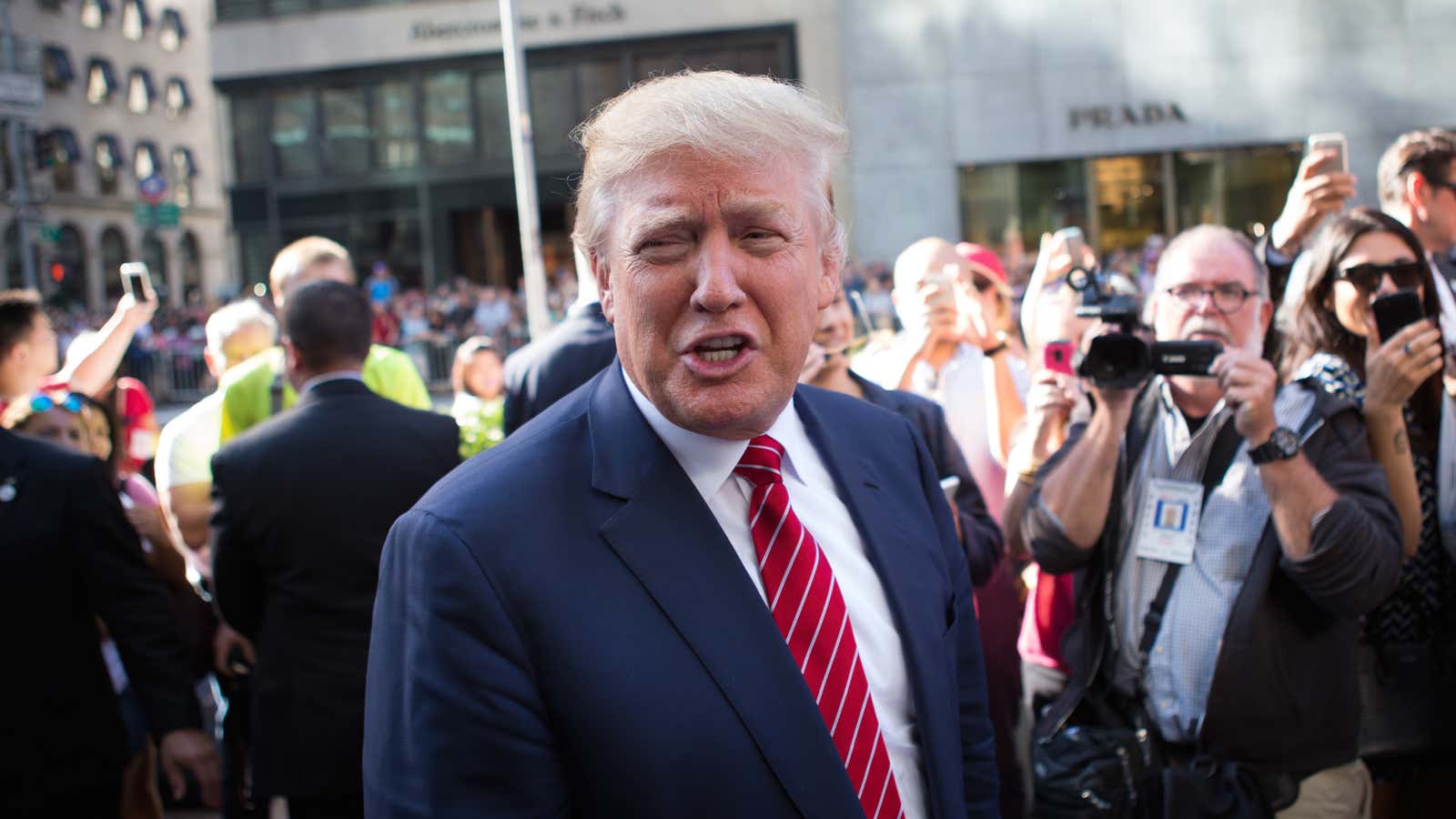There are a couple neat things about the Donald Trump versus Pope Francis spat. Besides making for entertaining television (and even more entertaining Twitter), the scuffle has turned out to be a pretty good way to explain what Muslims mean when they say that the Islamic State isn’t Islamic.
In case you missed it, Pope Francis condemned Donald Trump’s policies on Feb. 18: “A person,” the pontiff said, “who thinks only about building walls, wherever they may be, and not building bridges, is not Christian. This is not the gospel.”
A predictably angry Trump fired back: “If and when the Vatican is attacked by ISIS, I can promise you that the Pope would have only wished and prayed that Donald Trump would have been President.”
That escalated quickly. But, as you can see, it’s not just me that’s interjecting ISIL and Islam into the debate. I’m just using their public clash as a teachable moment.
The Pope believes that certain Trump policies are at odds with Christianity as he understands it. But was he figuratively (given that Trump is not Catholic) excommunicating the GOP frontrunner? After all, Francis didn’t say Trump’s practices were un-Christian. He said the person who espoused those tactics “is not Christian.”
The distinction between the practices and the person is critical to understanding why mainstream Muslims condemn ISIL in the way they do. Nearly every Muslim leader and organization I can think of rejects ISIL, though they rarely go so far as to excommunicate their opponents (as ISIL itself does.)
But such reticence shouldn’t be interpreted as hesitancy.
There are few practices considered more taboo for a Sunni Muslim (the tradition I’m more familiar with) than excommunication. The Muslim world’s repeated attempts to reject and rebuke ISIL are neither insincere nor half-hearted. They simply reflect the belief that condemning the person, instead of the practice, places you on a slippery slope.
ISIL is objectively, inexcusably brutal. They target innocent civilians, attack indiscriminately, and use rape as a weapon. None of these behaviors are Islamic. But none of these are exclusive to ISIL, either. The Assad regime, and the Hezbollah forces who fight alongside them, commit many of the same crimes. They may not make celebratory videos, nor expand their targets beyond the Syrian people, but that doesn’t take away from the ugliness of what is happening.
The Saudis are arguably doing many of the same things in Yemen, as well as within their own country to dissidents who cross the government. Muammar Gaddafi engaged in such practices in Libya. Egypt’s prisons are notorious for torture. Should we conclude that all these different actors are not Muslim? Once you start denying people’s self-identification, you begin to become the very thing you hate. Not to mention you open yourself up to criticisms of hypocrisy.
Speaking of which, plenty of other politicians have proposed policies similar to Trump’s. Many of them have been faithful Catholics. Should they no longer be considered Christians?
Trump’s spat with the Pope is yet another ridiculous episode in a presidential campaign that has been defined more by its buffoonery than by any principles. But beneath the bluster of the moment, it also offers an inadvertent opportunity to reflect upon why mainstream Muslims eagerly condemn ISIL as un-Islamic, yet are often reticent to deny ISIL members their Muslim identity. It’s true that Muslims don’t recognize any figure with the kind of authority possessed by the Pope. But more importantly, most Muslims see excommunication as fundamental to extremism–and therefore as anathema to them.




